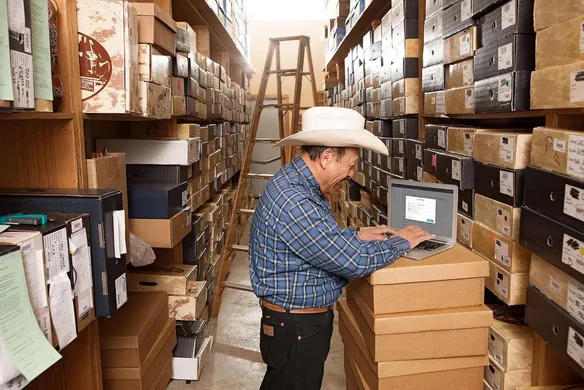Table of contents
This article does not constitute legal advice. If you have questions about insurance and liability, please consult a legal professional.
Public liability insurance is a must-have for business owners. If you own or manage a business, you can be liable for damages or injuries to another person or property that occur as a result of your business activities.
There’s always the chance that a customer may hurt themselves in your workplace, or that you may inadvertently damage someone else’s property while out on a job. For some occupations such as builders, plumbers and electricians, liability insurance is mandatory before you can legally operate. Regardless of your business type or industry, having the right insurance will help protect your business and minimise your exposure to risk.
What is public liability insurance?
Public liability insurance protects you and your business against the financial risk of being liable for injury or death, loss or damage of property, or economic loss as a result of negligence. Negligence is defined as a failure to take reasonable care to avoid causing injury or loss to another person.
Public liability insurance covers people, businesses, events, contractors and community buildings for the costs of legal action if that entity is found to be negligent. Types of harm caused by negligence might include:
- Injury or death due to a food product you produce making a customer sick
- Nervous shock, such as an event caused by you leading to a customer’s emotional distress or psychiatric illness
- Property damage, such as a fire caused by your carelessness or faulty equipment owned by you
- Consequential loss, where your negligent act causes another business to lose expected revenue
What does public liability insurance cover?
If you own or operate a business, you have a responsibility to those visiting your workplace or engaging in activities on your premises, known as ‘duty of care’. Public liability insurance covers you and your business for legal and compensation costs if you’re deemed to have breached this duty of care and caused injury, death, loss or damage due to negligence.
Some common examples of public liability claims include:
- A customer tripping on uneven ground at your workplace
- A customer slipping and falling due to a wet patch caused by a leaking appliance at your premises
- Materials or equipment injuring a customer or passers-by at your workplace
Who needs public liability insurance?
If your business requires your customers or the general public to visit your home or business, or if you visit your clients’ premises, you should consider taking out public liability insurance. Though public liability insurance is generally optional, it’s recommended for businesses in all industries as being sued for negligence is unpredictable and potentially very costly. In fact, the Insurance Council of Australia estimates that 70% of underinsured and uninsured small businesses affected by a major event such as legal claim, earthquake, fire or storm never recover..
Is public liability insurance compulsory?
In Australia, public liability insurance isn’t compulsory unless you work as a builder, plumber or electrician. Consultants and visiting professionals may also be required to hold public liability insurance to enter certain work sites or third-party premises, including those of federal and state government departments, local governments and hospitals.
What isn’t covered by public liability insurance?
There are three forms of liability insurance – public liability, professional indemnity and product liability. Depending on the nature of your business, it may be sensible to have insurance policies covering you for each type.
Public liability insurance does not cover you for:
- Injury to you or your employees
- Property damage suffered by you or your employees
- Illegal or deliberate behaviour
- Faulty workmanship
- Breach of professional duty
- Breach of contract
- Libel and slander
- Vehicles
There are also exclusions on some policies for certain occupations and business types. You should speak to a professional advisor or insurance broker about the most appropriate liability insurance products for your business.
What’s the difference between public liability insurance and product liability insurance?
Public liability insurance protects you in cases where the injury or damage to a customer is unrelated to the service you provide, such as someone tripping and falling while on your premises.
Product liability insurance covers you for damage or injury your products cause to another person or business, such as a hypoallergenic moisturiser causing an allergic reaction.
How much does public liability insurance cost?
The cost of public liability insurance will depend on many factors including the type, turnover and size of your business, and the industry that you operate in. As a general guide, a small office-based business with few onsite customers would expect to pay a smaller premium than a medium-sized construction company with a higher likelihood of causing damage to people or property.
For advice on the best public liability insurance policy for your business, you should speak to a professional advisor or insurance broker.
How much public liability insurance do I need?
The amount of public liability insurance you need will depend on the nature of your business. Although it can vary between insurers, the three main levels of public liability insurance in the Australian market are $5 million, $10 million and $20 million.
While a small, home-based business may be safely covered with a $5 million policy, a larger company with a different risk profile may need public liability cover of $20 million or more. The amount of cover you require may also be affected by the organisations you work with – many government contracts stipulate that you must hold public liability of at least $20 million.
Does public liability insurance cover my employees?
Public liability insurance generally doesn’t cover employees who are injured while at work – this is covered by workers compensation insurance, which is mandatory for all Australian employers.
Do self-employed workers need public liability insurance?
If you’re a sole trader, you’re not covered as an ‘employee’ as part of workers compensation insurance. Public liability insurance can help you to protect yourself by covering third-party damages including loss, injury or death and legal costs incurred while defending a claim, so it’s definitely worth considering.
![]()











